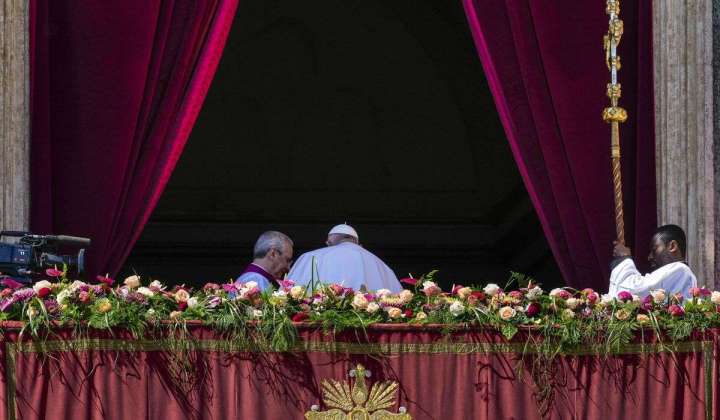Higher Ground: If Jesus on the cross can forgive, so can we

Celebrating the Resurrection. The Roman torture and execution of an obscure Jewish carpenter in first-century Palestine may not seem like a cause for celebration, columnist Michael McKenna writes, until you consider what happened afterwards: the resurrection of that dead carpenter, known as Jesus, or Yeshua bar Yusef.
Mr. McKenna suggests there are only two choices in considering the Easter story: Either Jesus “was God, in which case his torture, execution and resurrection are central to the lives of everyone on the planet, or he was an itinerant Jewish preacher who was probably a madman whose life and death meant nothing.”
Given that Jesus’ teachings have survived and flourished over the past 2,000 years, he writes, believing the latter option is more difficult.
Time is fleeting. In another column related to Holy Week, Mr. McKenna writes about the importance of caring for our friends and families while they are still in our lives.
“Fretting about the amount of time we have with those we love is pointless. Worrying about how and when they will leave is pointless. The best thing we can do is to love whoever God has put in our path for as long as they remain with us. Treat those you love and those in your care as well as you can every day, and always be armed with the knowledge that the time with all of them is fleeting,” he writes.
If Jesus on the cross can forgive, so can we. Forgiving one’s enemies even in the midst of the worst circumstances — something Jesus demonstrated on the cross — is a concept Americans, particularly the country’s sheltered youth, need to learn, writes Washington Times columnist Billy Hallowell.
“If Jesus, amid the most horrific moments imaginable while bearing the sin of mankind, can offer love and care for those mocking and annihilating him, perhaps we, too, can muster the ability to forgive, look past wrongs and even venture to love our enemies.”
Billy notes that others in Scripture also demonstrate the need for forgiveness, whether it’s Joseph in the book of Genesis or Stephen during his stoning recorded in the New Testament book of Acts.
Take Easter seriously. Easter and our freedom as Americans are linked, Judge Andrew Napolitano argues in his column.
He writes that while freedom can be taken by government fiat, it is essential if “we are to unite with the truth.”
“Taking Easter seriously recognizes that Jesus had the freedom to reject his horrific death, but he exercised his free will to accept it so that we might know the truth.”
The message of Easter is that there is hope for those who have died, Judge Napolitano writes. And, “if there’s hope for the dead, then there’s hope for the living.”
The madness of a crowd. The world’s current lemming-like rush to follow offbeat and even bizarre theories — abortion is health care, men can menstruate and gender is just a construct — is one example of today’s “madness of crowds,” writes commentator Donald Sweeting, president of Colorado Christian University.
But, he adds, one of the greatest examples of crowd madness was exhibited some 2,000 years ago when the mob assembled in the court of Pontius Pilate shouted “Crucify him! Crucify him!” when asked what should befall Jesus of Nazareth, whom Pilate himself found innocent. Egged on by self-serving leaders, the crowd asked Pilate to release an insurrectionist instead.
“On that Good Friday, it was not Jesus who was on the wrong side of history. The crowd was,” Mr. Sweeting writes.






